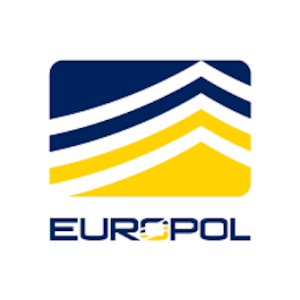The internet bombards us with more information about the other side of the planet than we could ever have imagined even 20 years ago. TV and computers now stream live events as they happen, instead of via delayed taping or recording days or weeks later as was the norm during the last century. But, with that immediacy of global sharing also comes the ability to commit crimes in new and more heinous ways.
Bank fraud can now occur through cyber crime, with fraudulent cryptocurrency transactions as the shiny new way of scamming the unsuspecting.
Instead of drug deals happening on street corners and alleyways, international transport of shipping containers full of illegal drugs (and legal goods in short supply transported illegally) plague the harbor masters at entry ports of each major country.
Global unrest due to political or natural disasters cause people to attempt emigration to safer places, giving rise to illegal immigration attempts. Human traffickers take advantage of the young people eager to cross borders without the means to do so legally, then sell those people into slavery or worse.
Across the globe, law enforcement is tasked to stem local crime, provide a safe environment for its own population, and enforce the laws on the books. But, when criminals seek to commit their crimes in another region in an effort to slow down pursuit or prevent investigation into their criminal acts, law enforcement in each jurisdiction usually has to find a way to work together in order to catch the bad guys. This is not always easy. Big cities have different methods than small communities do; federal, state, and local regulations may be at odds with each other, and resources are not easily shared.
There have been a few TV shows featuring international law enforcement groups – a current show is FBI International. That show highlights the difficulty facing agencies battling crimes that cross international borders. Europol is one of those real-life agencies.
Through Europol, the European Union, (a group of countries -presently 27- agreeing to work together in large part for economic reasons) addresses crime that crosses borders. “Our main goal is to achieve a safer Europe for the benefit of all the EU citizens.” *
Europol was officially established in 1995 to fight international drug trafficking and organized crime. It has operated out of The Hague (seat of government in the Netherlands) ever since. The Directors have come from various countries within the EU.
Forensic science is a big part of any law enforcement support system. When needed, Europol investigators are able to collect evidence at international (Eurozone) crime scenes and send it on to the lab. It is sorted and analyzed by qualified scientists who apply the latest scientific methods during processing. Law enforcement agencies across the EU can call on this assistance for the crimes that cross borders.
Europol helps fight these crimes:
- Euro counterfeiting – by determining the source of equipment and supplies needed to manufacture illegal Euro dollars.
- Illicit drug production – by helping to destroy illegal production sites, seize illegal drugs, stop illegal synthetic drug production, and to collect evidence in EU Member States.
- Payment card fraud – by seeking and prosecuting the criminal organizations behind credit card cloning and counterfeiting, and their tampering with credit card readers and machines.
- Terrorism – by providing immediate on-site information sharing and evaluation support for investigations into terrorist attacks, in or out of the EU.
- Cybercrime – by providing a centralized, united response to crimes committed online affecting EU member states.
-
-
- Financial
- Infrastructure (i.e. power or water related)
- Child online porn
- Information systems
-
-
Part of Europol’s mission is not just to show up to assist local authorities, but also to train the regional law enforcement groups to better handle their own investigations – with more knowledge, a higher level of investigations can improve results.
Europol provides training to law enforcement personnel both in and out of the Eurozone. Connections made between officers from a variety of countries can only improve cooperation throughout the continent in order to more effectively combat criminal enterprises.
*quote from the Europol website

